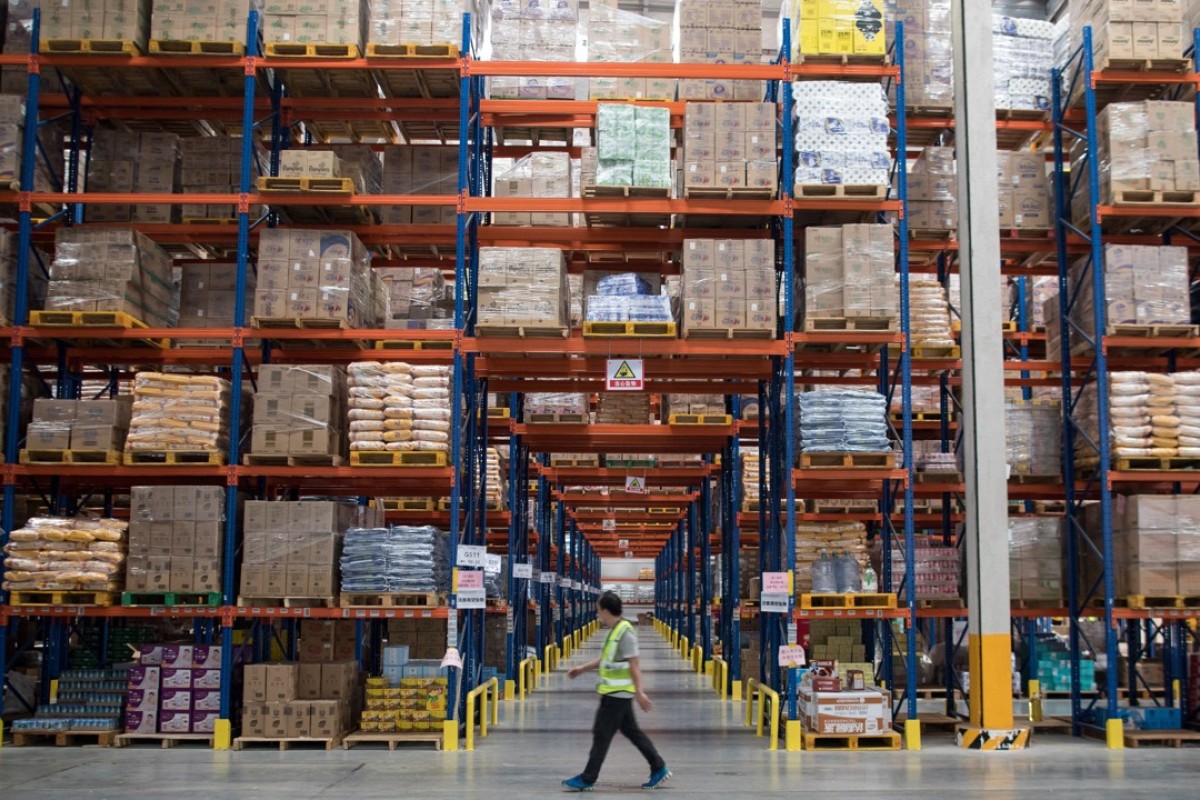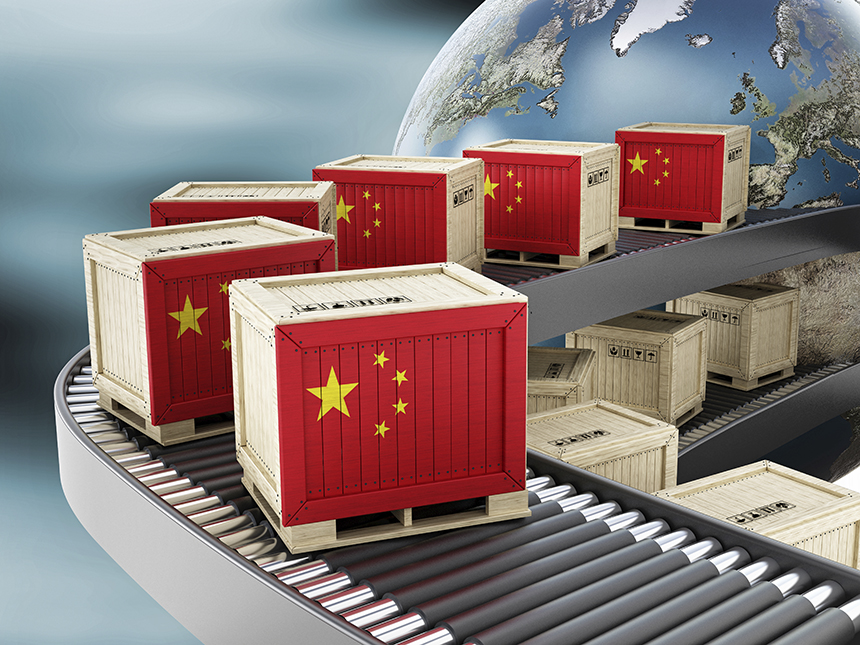Economic Concerns: China’s Economy Enters Deflation as Post-COVID Recovery Stumbles

Economic Concerns: China’s Economy Enters Deflation as Post-COVID Recovery Stumbles
Official data released on Wednesday revealed that China experienced deflation in July for the first time in over two years. This occurrence is attributed to the slowdown in domestic spending, which is impacting the post-Covid economic recovery of the country. The deflationary trend raises concerns about the overall financial health of China and its ability to maintain stable growth in the face of ongoing challenges.
The deflationary reading in July follows closely after another concerning economic development for China. The country recently experienced its most significant decline in exports since the early stages of the pandemic, indicating a significant reduction in demand from both domestic and global markets. Additionally, imports also plummeted as a result of weakening demand. These trends highlight China’s economy’s challenges as it grapples with reduced consumer spending and uncertain global trade conditions.
The National Bureau of Statistics reported that the Consumer Price Index (CPI), a key indicator of inflation, dropped by 0.3% in July. This decline follows a period of stagnation in June, where the index remained unchanged. The negative movement in the CPI suggests a deflationary trend, indicating that overall prices for goods and services are decreasing, possibly due to reduced consumer spending and subdued economic activity.

The 0.3 per cent decline in the Consumer Price Index (CPI) for July was slightly better than the 0.4 per cent decline predicted in a Bloomberg survey. However, this still represents the first decrease in the CPI since the start of 2021. The deflationary trend is expected to put additional pressure on authorities to implement measures to support the economy, as declining prices can indicate reduced consumer demand and potential economic challenges.
Deflation refers to a sustained decrease in the general price level of goods and services within an economy. This phenomenon is typically caused by reduced consumer spending, lower demand for goods and services, excess capacity in production, and technological advancements that lead to lower production costs. Deflation can negatively affect an economy, leading to decreased business profits, increased debt burdens, and hindered economic growth. Central banks and governments often take measures to counter deflation and stimulate economic activity.
While cheaper goods might initially seem advantageous for consumers, deflation can harm the overall economy. Consumers may delay purchases in anticipation of further price reductions, which reduces demand for goods and services. As a result, businesses might cut back on production, leading to reduced hiring and potential layoffs. Lower demand and decreased economic activity can also lead to declining business revenues and profits, creating a cycle of economic stagnation.
In the case of China’s experience with deflation at the end of 2020 and early 2021, the collapse in pork prices significantly contributed. Pork is a staple food in China, and when its prices dropped due to factors such as disease outbreaks among pigs, it greatly impacted the overall inflation rate. This underscores how specific characteristics, such as changes in the prices of essential commodities, can significantly influence deflationary trends.

The concerns about a prolonged period of deflation in China are valid, especially given the country’s challenges. The slowdown in China’s primary growth engines, such as manufacturing and exports, and rising youth unemployment, can contribute to a prolonged period of decreased consumer spending and demand. This can further exacerbate the deflation cycle as businesses respond by reducing production and investment.
High youth unemployment can have particularly significant economic and social implications, as it affects the immediate economic prospects of young individuals and long-term productivity and overall economic growth. Addressing these challenges requires a combination of monetary and fiscal policies to stimulate demand, support employment, and encourage investment.
The ongoing turmoil in China’s real estate sector and the decline in exports are significant factors contributing to the deflationary pressures in the country. The real estate sector has been a crucial driver of China’s economy for many years, accounting for a substantial portion of its economic activity. However, recent regulatory changes and tightening measures in the real estate market have led to a slowdown in construction and property investment, impacting the broader economy.
Additionally, the decline in exports can be attributed to weakening global demand, trade tensions, and disruptions caused by the COVID-19 pandemic. Historically, China’s export-driven growth model has been a critical source of economic expansion. Still, as global economic conditions change, the country’s dependence on exports as a growth engine has become more susceptible to fluctuations.

‘Cause for concern.’
The recent disappointing export figures have directly impacted numerous export-oriented companies in China, causing them to operate at a reduced pace. This situation is indicative of the challenges that the Chinese economy is currently facing. The latest inflation data released has yet to instil much confidence in the prospects of an imminent economic recovery. The data indicates that China continues to be a source of concern from a global growth standpoint.
The producer price index (PPI) also declined, falling by 4.4 per cent in July. While this was a slight improvement compared to the 5.4 per cent decrease in June, it still marked the tenth consecutive month of contraction in the PPI. The decline in producer prices highlights the persistent pressures on industries and businesses in China, further underscoring the economic challenges the country is grappling with.
These economic indicators emphasize the need for policymakers in China to address the underlying issues impacting various sectors and work towards implementing measures that can stimulate growth, support businesses, and boost consumer confidence. The economic performance of China holds implications for global markets and economic stability, given its significance as a major player in the global economy.

The producer price index (PPI) serves as an indicator of the cost of goods leaving factories, offering insights into the overall economic health of a country. When producer prices decline, it often indicates reduced profit margins for companies, as they earn less for their goods.
The recent discouraging economic data indicates that China might need help in achieving its targeted five per cent growth for the year. The country’s economic growth has been sluggish, with official figures reporting a mere 0.8 per cent growth between the first and second quarters of 2023.
As economists and analysts increasingly call for a comprehensive recovery plan to stimulate economic activity, the Chinese authorities have mostly focused on targeted measures and declarations of support for the private sector. However, the latest disappointing economic numbers could exert pressure on the government to reassess its approach and potentially consider more substantial steps to address the economic slowdown.

In the face of ongoing economic uncertainties, finding effective strategies to reignite growth while ensuring stability remains a crucial task for China’s policymakers. The outcome of these efforts holds implications not only for the domestic economy but also for global economic dynamics.






